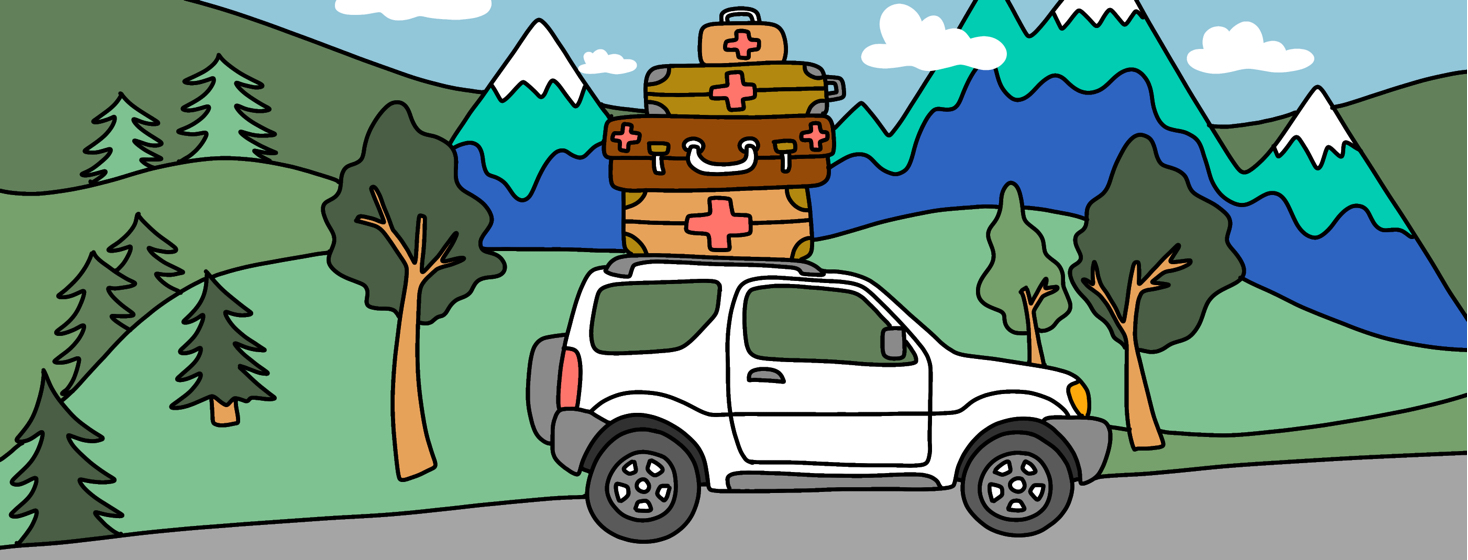How Life Has Changed - A Partner's Perspective
We talk so much about how our personal lives have changed with axial spondyloarthritis, but it occurred to me recently that my AS has affected more than just my life. In a different way, my AS has affected my partner Stacia’s life and what our life looks like together. So, I wondered what she would say about how life has changed since my diagnosis. Here are her responses.
How has life changed since Jessica's diagnosis?
Fortunately, we are still able to enjoy many of the things we did before Jessica was diagnosed and her symptoms became more bothersome. We still enjoy weekend and evening hikes, walking our dogs to the park, travel adventures with family members, baseball games, and so much more. However, to ensure we are able to do these leisurely activities we love without causing more pain and discomfort for Jessica, we’ve learned to take a more strategic and planned approach to our outings.
That’s not to say we cannot be spontaneous, because we have been known to hit the road or the trail on a last minute planned trip, but we’ve learned over the years what does and doesn’t work. In other words, what the limits are, needed gear, and the ability to pace ourselves during the past-times we enjoy as a family.
Strategic planning and relaxation
So how have we taken a more planned and strategic approach? Well, we’ve learned to limit ourselves and embrace relaxation as much as exploration. Compromise, or balance is key.
Some days Jessica feels great and we’re tempted to push the length of a hike, or evening outing downtown. But over the years we’ve learned pushing a hike an additional half mile or sitting an extra hour at an uncomfortable bar stool can lead to days of pain, fatigue, and exhaustion for Jessica and it’s just not worth it. This is where compromise and balance is so important. After a hike or an evening outing on the town, comfortable seating at home, ice packs or heating pads, and a nice soak in the tub are often required to limit paint, fatigue, and lingering discomfort.
Equipment and supportive furniture
In addition to compromise and balance, it’s so important to ensure we have the right equipment for outings. Comfortable shoes and boots are a must accompanied by supportive insoles. At sporting events we bring a cushion for Jess to sit on. Icy hot patches, knee braces, a lightweight waist pack instead of a traditional on-the-back hiking pack on our outdoor adventures are crucial. Taking her CR-V on long road trips as opposed to my Civic to limit discomfort from sitting so low to the ground (which also helps with getting in and out of the car!), walking/hiking poles, and better harnesses for the dogs.
We’ve also invested in a comfortable recliner and memory foam mattress, a cushion pad for the bottom of shower floor, polarized sunglasses, and of course medication, which are all supplies we’ve found to be helpful for outings that have limited discomfort for Jessica.
Remaining flexible
So, while we are fortunate to be able to enjoy and do many of the things we did before Jessica was diagnosed, we have had to limit exertion and invest in products that help minimize pain from an outing. From this perspective, in many ways life has changed little. But in another sense since Jess’ diagnosis, our life together has changed in that we have to be more mindful, compromising, and aware of what small changes or additions, such as gear and better planned routines, can make a big difference in how Jess’ body and mind feel in the coming hours and days after an outing.
Having a plan, remaining aware of Jess’ limits, and of course medication have allowed us to continue doing what we enjoy. The willingness to adjust, be flexible and understanding means we can continue to do the things we love to do. And even if we can’t do those things some days, that’s okay. I do my best to express how okay it is to be flexible and postpone events for better days.

Join the conversation